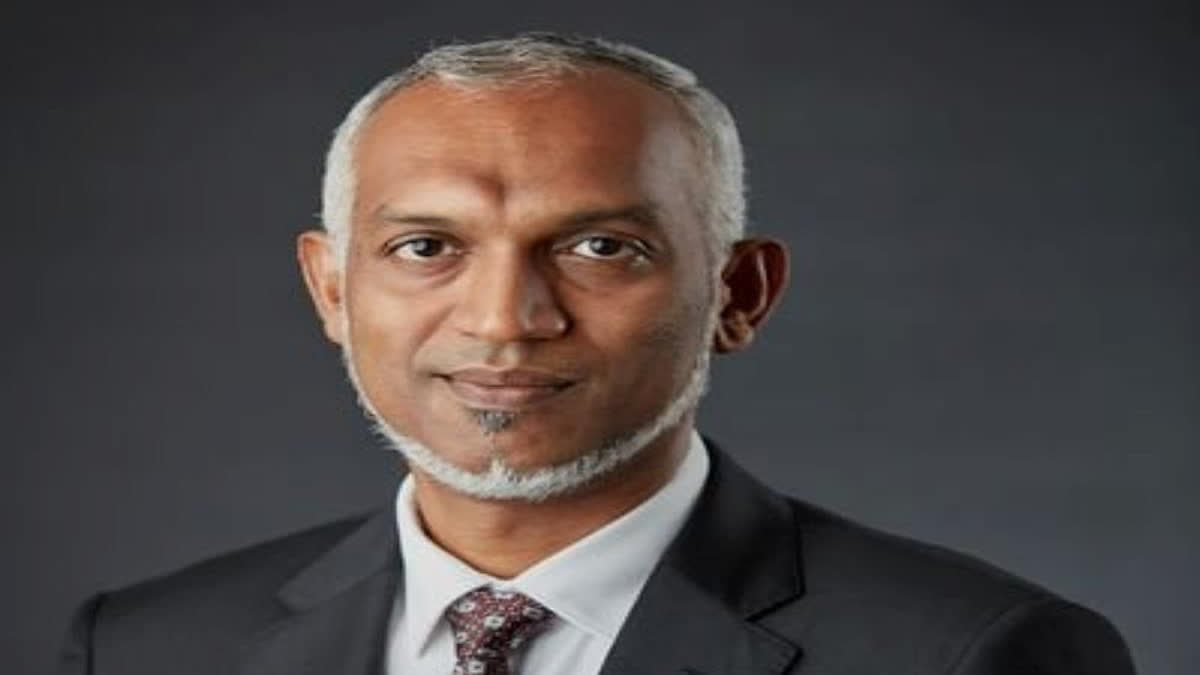New Delhi: The Indian government has agreed to withdraw its military presence from the Maldives. This was informed by new Maldivian President Mohamed Muizzu in a presser on Sunday, after returning from UAE. “In the discussions we had, the Indian government has agreed to remove Indian soldiers,” Muizzu told reporters in Male.
“We also agreed to set up a high-level committee to solve issues related to development projects.” Muizzu made the remarks following engagements on the sidelines of the COP28 climate summit.
Meanwhile, sources in Delhi said that both India and Maldives have agreed to set up a core group to deliberate on the continued usage of Indian military platforms in the island nation. This came up during the bilateral meeting between PM Modi and the Maldivian Prez on the sidelines of COP 28 in UAE.
"We have seen reports about the status of Indian platforms in Maldives engaged in HADR activities. The continued usefulness of the Indian platforms as it was recognised in discussions needs to be looked at from a proper perspective. The issue was briefly discussed in Dubai", sources said on Sunday.
According to sources, the Maldivian side has acknowledged the utility of these platforms. "The fact that it is an important segment of our bilateral development partnership is recognised by both sides", added sources. "Discussions on how to keep them operational are going on. The core group that both sides have agreed to set up will look at details of how to take this forward," sources said.
Notably, the island nation has two helicopters and an aircraft provided by India to the Maldives National Defence Force (MNDF) for emergency medical evacuations and disaster relief operations. There are 77 Indian military personnel in Maldives to operate these platforms.
During the recently held COP-28 Summit in UAE, both leaders reviewed the wide-ranging bilateral relations between the two countries, including people-to-people linkages, development cooperation, economic relations, climate change and sports. The two leaders also discussed ways to further deepen their partnership. In this regard, they agreed to set up a core group, the Ministry of External Affairs said.
Also read:
- Global warming could cost poor countries trillions. They've urged the UN climate summit to help
- World Bank launches climate and health initiative to avert 21 million deaths by 2050
